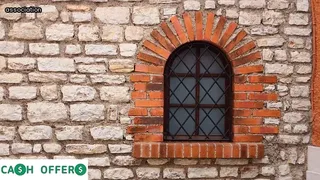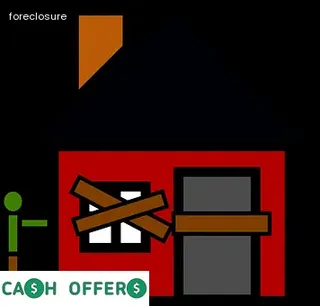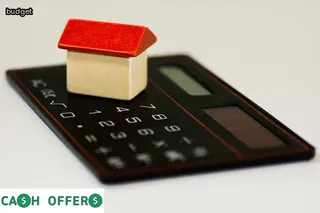In Delaware, a priority lien is a way for homeowners associations (HOAs) to recoup unpaid dues. These liens are legally binding and can be placed on the delinquent homeowner's property if they do not pay their HOA dues in full.
The lien takes precedence over other debt obligations and can remain in effect until the homeowner pays off the total amount due. To avoid penalties and potentially losing their home, it's important for homeowners to understand how priority liens work in Delaware.
HOAs typically must foreclose on the property if dues remain unpaid for more than six months. This means that the HOA can take ownership of the delinquent homeowner's property as payment for the outstanding debt if payment is not made by a certain date.
If a foreclosure does occur, any remaining balance owed after the sale of the home becomes an unsecured debt to be paid off by the delinquent homeowner. To avoid this situation entirely, it’s important for homeowners to keep up with their HOA dues payments and make sure they are paid in full and on time.
Additionally, homeowners should reach out to their local HOA board or management company as soon as possible if they are unable to make payments or need assistance with payment plans or other options available to them.

Real estate investments can be lucrative, but they also bear a set of responsibilities that must be met. Common interests and ownership of real estate, such as condominiums or townhouses in Delaware, require owners to pay their Homeowners' Association (HOA) dues on time.
When delinquent HOA dues are not paid, it can lead to penalties for the owner. To avoid these penalties and resolve unpaid fees, there are a number of solutions available to homeowners.
Understanding the benefits and drawbacks of common interests and ownership of real estate is key to resolving delinquent HOA dues and avoiding costly fees. Some advantages include access to amenities like swimming pools and tennis courts that would otherwise be unavailable, as well as potential financial benefits from shared maintenance responsibility and insurance costs.
On the other hand, common interests may mean having less control over property decisions since all homeowners must agree on changes or upgrades. Additionally, failure to pay HOA dues could result in liens being placed on the property or even foreclosure proceedings depending on the amount due.
Knowing your rights and obligations when it comes to common interest ownership can help prevent delinquency issues down the line.
When it comes to delinquent HOA dues in Delaware, an attorney may be the best way to resolve unpaid fees and avoid costly penalties. An attorney can provide guidance on how to effectively collect past due payments by providing advice on collection strategies and assisting with lien management.
They can also advise on legal action that can be taken against property owners who refuse to pay, including filing a lawsuit. In addition, an experienced attorney will be able to review the HOA's bylaws and help ensure they are up-to-date with state laws and regulations.
They can also assist in negotiating payment plans, as well as helping to establish clear rules for future delinquencies. With the right legal counsel, HOAs in Delaware can reduce delinquencies while protecting themselves from costly liabilities that come along with unpaid dues.

Exploring attorneys' practices and industries for HOA debt solutions can be a useful tool for those struggling with delinquent HOA dues in Delaware. Many homeowners are unaware of the legal repercussions of non-payment, so it is important to consider the advice of a licensed attorney when dealing with unpaid fees.
An experienced attorney will be able to assess the situation and provide guidance on how to resolve the amount owed while avoiding any penalties or interest charges. It's also important to note that an attorney can assist in understanding state laws regarding HOA collections and guide homeowners through the appeals process if necessary.
With their expertise, attorneys can offer insight on payment plans, negotiating settlement agreements, and other options that may be available depending on the specifics of each situation.
The latest trends for resolving homeowner association debt are becoming increasingly important as delinquency rates for HOA dues continue to climb. In Delaware specifically, delinquent HOA dues can be particularly problematic due to the high-cost of living and limited housing availability.
To address this issue, many HOAs have taken steps to reduce the financial burden on their members by providing more flexible payment plans and offering incentives like discounts on future dues when residents make timely payments. Additionally, HOAs now have more options when it comes to collecting unpaid fees thanks to recent changes in legislation that allow them to pursue more aggressive tactics with debtors.
This includes filing a lien against the property or suing the individual responsible for the debt in court. Ultimately, following these latest trends is key for reducing delinquency rates and avoiding costly penalties associated with unpaid HOA dues in Delaware.

When it comes to delinquent HOA dues in Delaware, homeowners can find themselves in a difficult situation if they fail to pay their fees on time. Factoring is one solution that may be available to help homeowners avoid falling behind and incurring any unpleasant penalties.
Factoring is when a homeowner sells an unpaid HOA invoice to a third party at a discounted rate for immediate payment, allowing the homeowner to avoid any potential late payment penalties. The third party will then collect the full amount from the HOA after the due date has passed.
This process allows the homeowner to receive cash quickly and keeps them from slipping further into debt or dealing with other unpleasant consequences of not paying their dues on time. This method can help ensure that all parties involved are happy with the outcome and that no one suffers any financial losses or issues due to an unpaid invoice.
When it comes to delinquent HOAs in Delaware, the question of where unpaid fees lead often arises. It is important to know what options are available for resolving unpaid dues, and how failure to do so can result in costly penalties.
In most cases, the HOA will begin by sending a notice of delinquency to the homeowner, outlining all past due amounts and any applicable late fees that have accrued. If these fees remain unpaid, the HOA may move towards assessment of special fees or charges, which are separate from regular membership dues.
Penalties for nonpayment can include interest on outstanding balances or legal action by the HOA. To avoid such consequences, homeowners should promptly resolve any delinquent payments or contact their local HOA management company if they need help with repayment plans or other arrangements.

When it comes to delinquent HOA dues in Delaware, it is important to take a proactive approach to resolving unpaid fees and avoiding potential penalties. One way that HOAs can help reduce delinquencies is by offering payment plans or financial assistance when necessary.
This can allow residents who are facing financial hardship the opportunity to pay their dues without incurring additional fees. Additionally, HOAs should consider sending out multiple reminders about due dates and consequences for late payments.
For those who are habitually delinquent on their payments, increasing communication with these individuals may provide helpful insights and encourage prompt payments. In addition, providing incentives such as discounts or rewards for timely payments can also be beneficial in reducing delinquencies.
Ultimately, while there may not be a single solution to eliminating all delinquencies, taking a comprehensive approach that includes different methods of communication and incentives may help HOAs reduce overall delinquencies in Delaware.
The ability to leverage the expertise of HOA management companies can be a critical tool for reducing delinquencies in Delaware. Professional HOA management companies are experienced in navigating the complex legal terrain associated with unpaid fees and penalties, and can help homeowners associations (HOAs) create effective strategies for addressing delinquent dues.
HOA management companies can provide assistance to HOAs by helping them craft specific payment plans that take into account the individual financial situations of each homeowner, as well as providing guidance on how best to collect payments. Additionally, they can ensure that the most up-to-date regulations are being followed and assist with understanding any applicable state or local laws.
Their knowledge and experience can be key in helping HOAs reduce delinquencies while avoiding costly penalties or litigation.

For homeowners in Delaware who don’t pay their Homeowners Association (HOA) dues, there are steps they can take to avoid penalties and resolve any unpaid fees. First, contact the HOA or management company as soon as possible to explain the situation and inquire about a payment plan.
Many HOAs are willing to negotiate a payment plan that is tailored to an individual’s financial situation. It may also be possible to arrange a one-time late fee waiver if the homeowner agrees to pay all outstanding dues by a specific date.
In addition, it is important for homeowners to thoroughly read their HOA documents and understand what punishments or consequences may ensue if payments are not made on time or if dues remain unpaid for an extended period of time. Understanding these potential ramifications ahead of time can help homeowners make informed decisions when it comes to paying their HOA dues.
Furthermore, seeking legal advice from an attorney with experience in HOA disputes is recommended if back payments cannot be negotiated or resolved with the HOA board or management company.
For many Delaware homeowners, paying HOA dues can be a difficult financial challenge. Fortunately, there are alternative payment options available for those who are struggling to meet their obligations.
One potential solution is to contact your HOA and request to enter into a payment plan. This can help break up the cost of dues over several months or even years in order to make them more manageable.
Additionally, some HOAs may also allow members to pay with credit cards or utilize online payment systems, which can offer extra convenience and flexibility when making payments. Finally, if you find yourself unable to make payments due to unexpected circumstances such as job loss or medical issues, it’s important to reach out to your HOA and explain the situation as soon as possible so that they can come up with an alternative resolution or accommodations.
By taking advantage of these options, you can avoid the penalties associated with delinquent HOA dues while still fulfilling your financial obligation.

When you become a homeowner, one of the responsibilities you take on is staying current with your homeowners association (HOA) dues. Failing to pay your HOA dues can result in serious consequences, such as late fees and even legal action.
In Delaware, it's important to understand your responsibility toward unpaid HOA dues and how to resolve them in order to avoid incurring penalties. Homeowners must be aware of the rules that govern their HOA and the process for paying delinquent dues.
When it comes time to pay your HOA dues, make sure that you are aware of any payment deadlines and any potential penalties for late payments. Additionally, if you ever find yourself behind on payments, it's important to know what options are available for resolving unpaid HOA fees without running the risk of being penalized.
Finally, it may also be beneficial to speak with an attorney or real estate professional if you have questions or need assistance understanding or resolving a delinquent HOA issue in Delaware.
Homeowner Associations (HOAs) across Delaware are facing an increasing number of delinquent fees, but there are ways to resolve these unpaid dues and avoid penalties. Negotiating with homeowners who have not paid their fees is a valuable strategy for resolving the issue.
Analyzing the impact of late payments on the HOA's overall financial health can help identify potential issues that need to be addressed. Examining legal options available when collecting unpaid dues can provide additional assistance when dealing with delinquencies.
Investigating possible penalties for failing to pay homeowner association fees is also important in order to stay within the confines of the law. Comparing different payment methods for uncollected dues gives homeowners multiple options for settling their debts.
Discovering creative solutions for resolving unpaid homeowners association dues can make it easier to come to an agreement that works best for all parties involved. Finally, uncovering future changes in HOAs regulations regarding delinquent fees can help keep associations up-to-date on relevant laws and regulations moving forward.
Dissolving an HOA in Delaware can be a difficult process. It requires a majority vote of all homeowners and the approval of the Department of Real Estate and Housing.
In some cases, unpaid HOA dues may cause homeowners to consider dissolving their association. However, there are steps that can be taken to resolve delinquent HOA dues and avoid penalties.
First, it's important to understand the rules of your HOA regarding late payments and missed assessments. Understanding these rules can help you determine if any violations have occurred or if additional fees have been incurred as a result of delinquency.
If any violations have occurred, it is important to contact the Board immediately and make arrangements for payment or dispute resolution. If no violations have occurred, it may be possible to enter into a payment plan with the Board or work out an arrangement for making up missed payments over time without incurring additional fines or penalties.
Additionally, it is important to review the governing documents of your HOA regarding dissolution procedures in case this becomes necessary in order to resolve unpaid fees or avoid penalties. With proper understanding and communication between property owners and the Board, it is possible to successfully navigate unresolved HOA dues and avoid dissolution of your association in Delaware.

The Delaware Department of Housing and Urban Development (HUD) regulates Homeowners' Associations (HOAs) in the state. All HOAs must meet certain criteria set by HUD, including rules for collecting delinquent dues from members.
If a homeowner does not pay their dues, the HOA is allowed to take certain steps to recoup the unpaid fees, such as fines and interest charges. In some cases, an HOA may even file a lien against the homeowner's property.
If a lien is successfully filed, any proceeds from a sale of the home must first be applied to paying off the lien before any other debts or obligations can be settled. It is important for homeowners to understand their rights and responsibilities when it comes to delinquent HOA dues in Delaware so they can avoid penalties and resolve unpaid fees quickly and efficiently.
If you're a homeowner in Pennsylvania and don't pay your HOA fees, there can be serious consequences. Your local Homeowners Association (HOA) can impose fines, place liens on your property, and even take legal action against you.
Unpaid HOA dues can create a financial burden for the association and reduce the value of all homes in the community. It's important to understand how delinquent HOA dues work in Pennsylvania, what measures are taken by an association to collect unpaid fees, and how to avoid any potential penalties.
To start, it's important to know that all HOAs have their own rules regarding payment of dues and delinquency policies. Generally speaking, if you are late paying your dues or fail to pay them altogether, your HOA may impose late fees as well as interest on unpaid balances.
If these payments are not made promptly, they may take more drastic steps such as filing a lien on your property or filing a lawsuit against you. In addition to potential legal action, non-payment of dues will likely result in suspension of privileges such as access to amenities or voting rights.
To avoid these penalties and resolve unpaid fees quickly, homeowners must contact their HOA board members and work out a payment plan or other resolution satisfactory to both parties. Understanding the laws surrounding delinquent HOA dues in Pennsylvania is essential for avoiding any potential consequences and keeping your community financially sound.
The largest Homeowners Association (HOA) in America is the Del Webb Corporation, which is responsible for managing over 500,000 homes across the United States. In Delaware, Del Webb oversees numerous communities and HOAs, handling delinquent HOA dues as part of their services.
Delinquent HOA dues can lead to significant financial penalties if not properly addressed, so it’s important to understand the process for dealing with unpaid fees and avoiding penalties. Fortunately, Del Webb offers a range of options to help homeowners resolve unpaid HOA dues and avoid penalties.
From payment plans to hardship programs, Del Webb provides resources for resolving delinquent payments quickly and efficiently. Understanding how to deal with delinquent HOA dues can help keep homeowners from facing costly financial penalties in Delaware.
A: If a homeowner in Delaware fails to pay their delinquent HOA dues, they may be subject to penalties or other consequences outlined in the Homeowner's Association rules.
A: Under Delaware law, collections agencies are able to pursue delinquent HOA dues through a court-ordered lien placed on the homeowner's property. This lien allows the collections agency to collect repayment of dues from the sale of the property.